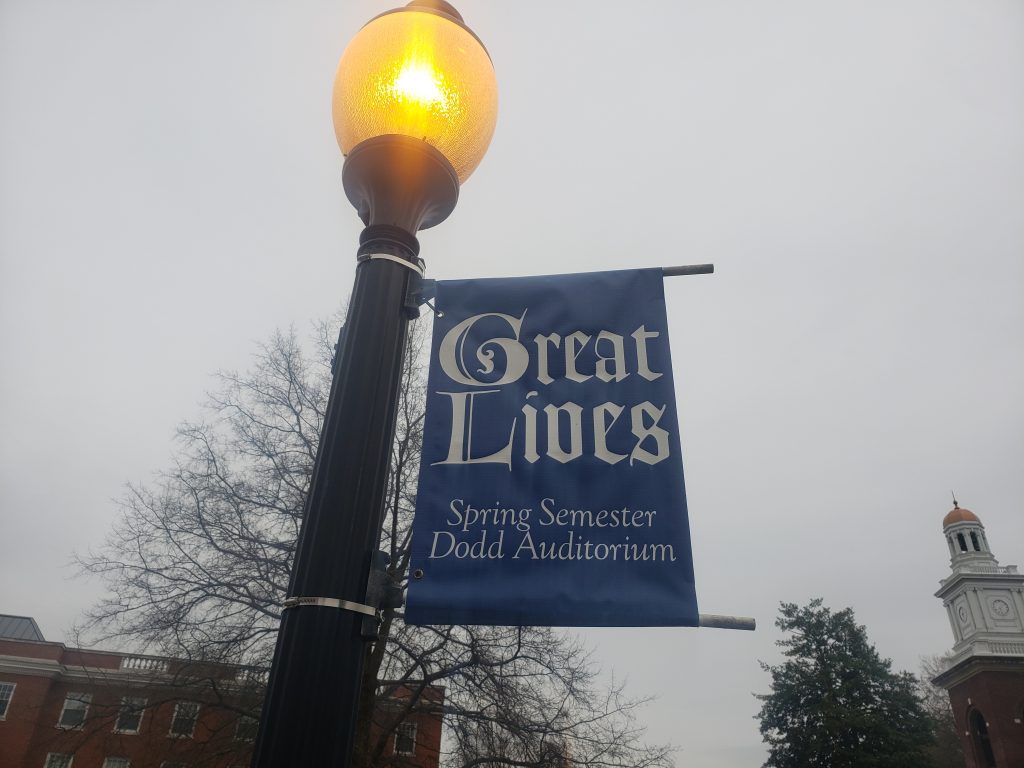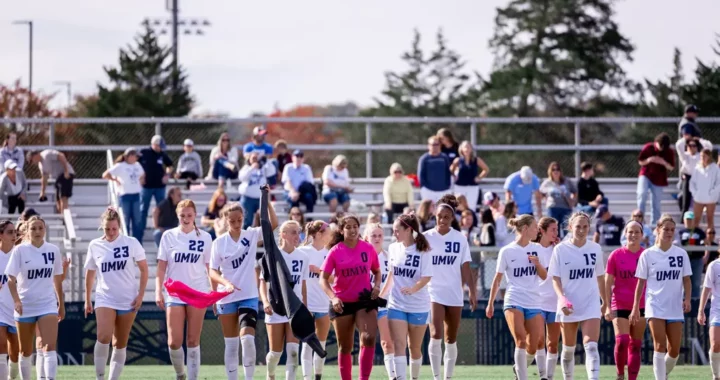Great Lives Lecture series lacks diversity and proper representation
3 min read
Great Lives lecture series features too few minority people and groups. (Alicen Hackney | The Blue & Gray Press)
By DEANNA BIONDI
Staff Writer
The William B. Crawley Great Lives lecture series needs to work toward a higher rate of diversity in its lectures. There have been numerous contributions to history by women and people of color; far more than what has been represented through this lecture series.
The Great Lives lecture series is a program in which biographers visit Mary Washington to give lectures on notable figures in history in Dodd Auditorium. The series has been running every spring semester since 2004 and is free for the public to attend. On the “About the Series” section of the Great Lives page on the UMW website, the lecture series is described as an opportunity to “explore the diverse lives and achievements of remarkable people.” While the subjects of the lectures are diverse in their roles in history, from Tiger Woods to Ronald Reagan to the Beach Boys, the series presents a startling lack of racial and gender diversity in both its speakers and subjects. From 2015 through 2019, the Great Lives lecture series featured as subjects seven men of color, five women of color, ten white women, eight non-specific groups of women and 55 white men.
Of the nineteen Great Lives lectures scheduled for this semester, from January to April, there are 11 white male subjects, two men of color, and five women. The lectures are led by 15 white men and five women, with not a single person of color giving the lectures. There are no women of color represented this semester, among either the subjects or the speakers. Of the five female-focused lectures this semester, only two of them are focused on specific women: Hedy Lamarr and Sandra Day O’Connor. The other three lectures are about groups of women in a particular aspect of histories, such as Female Aviators and Female Internet Inventors. While the latter sheds important light on female contribution to a certain sect of history, it does not allow appreciation for one single female historical figure. These groups sometimes feature women of color who deserve to have a separate biography/lecture dedicated to them, unrepresented as they are. This heavy focus on groups of women in favor of specific individuals is a trend across every semester in which the series has existed.
In addition to the lack of diversity among the subjects of the lectures, there is an even bigger problem among the speakers. Three of the five female-focused lectures are held by men, and the only two people of color represented in the lectures are given by white men. It is important for historically marginalized groups to have their stories told throughout history, and it is often beneficial for those stories to be told through the eyes of someone from the same marginalized group, especially when the subject’s contribution to history is directly related to their race, such as Frederick Douglass, who was the subject of a Great Lives lecture last month. Lectures about marginalized groups, by marginalized groups, would open the door for a more in-depth discussion about racism and/or sexism across history, the subject’s impact on those institutions, and how they tie back to our society today. For these topics to be approached by privileged groups is limiting.
Having attended many of the lectures myself this semester, I have noticed that the lack of diversity is reflected in the audience, with a majority of those in attendance being white and over 50 years old. I believe that a more diverse lecture series will invite a more diverse audience, and I also believe it is important for privileged groups to learn about the historical contributions of marginalized groups.
Marginalized groups, specifically women and people of color, have had their contributions and achievements overlooked and underappreciated throughout history. These groups deserve higher representation in the William B. Crawley Great Lives lecture series for the many significant contributions that individuals in these groups have made to history.


